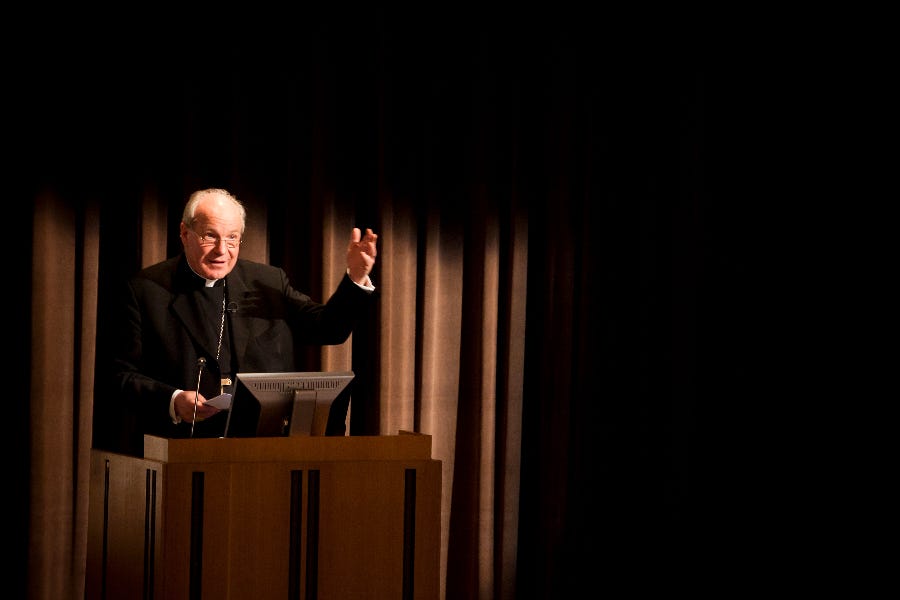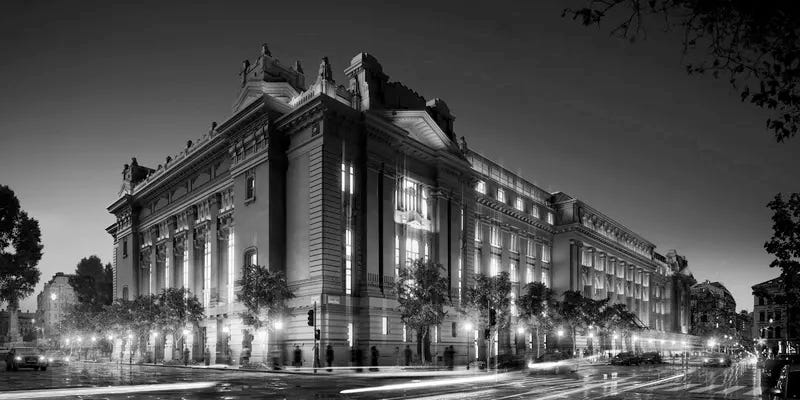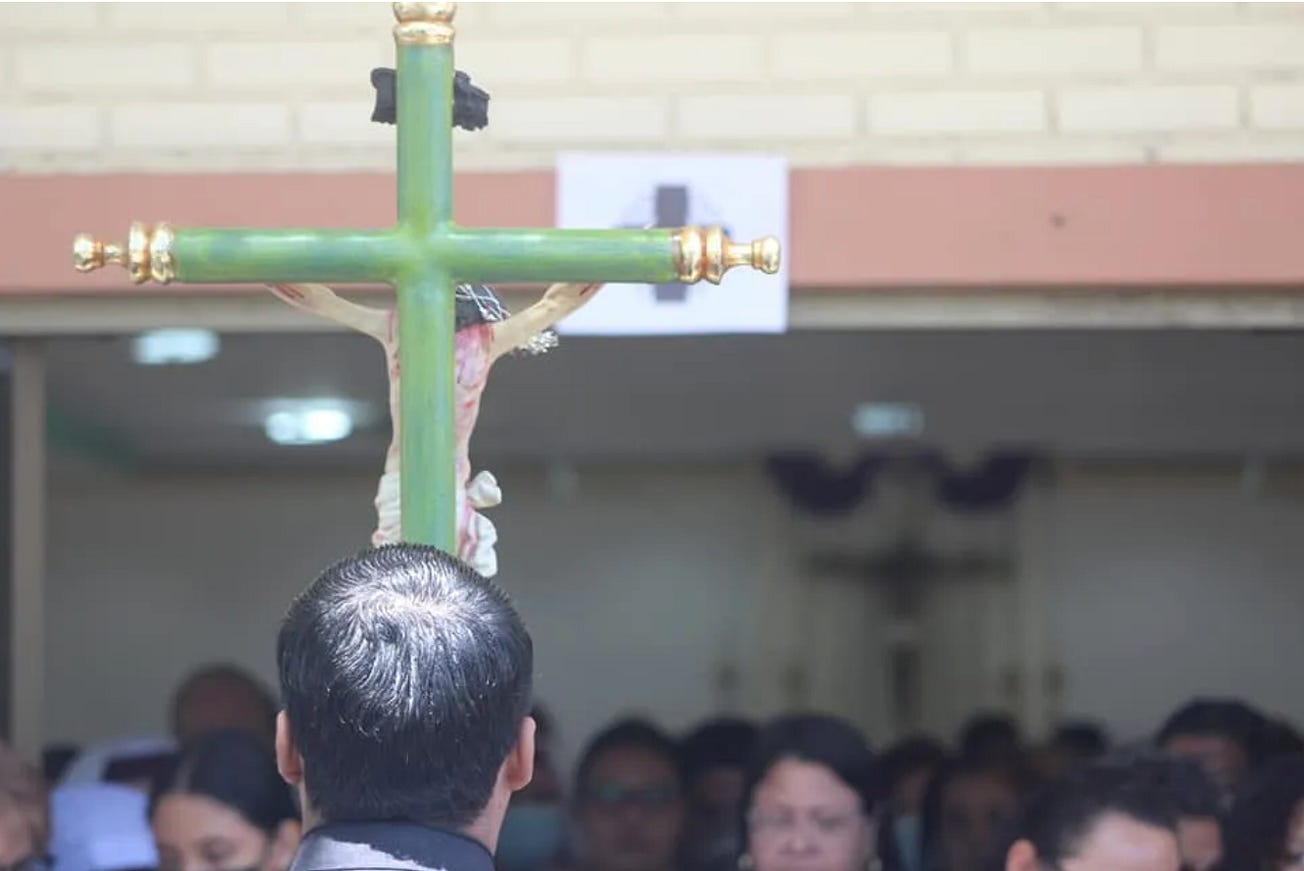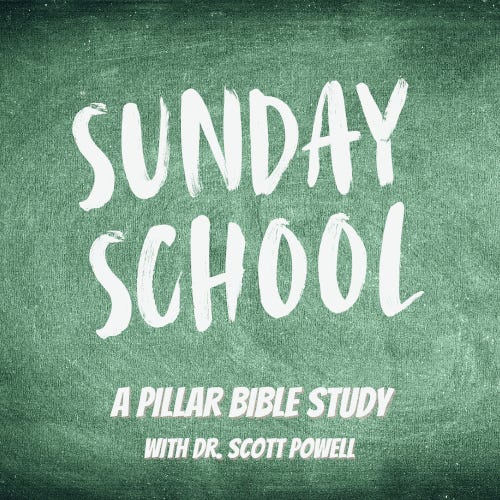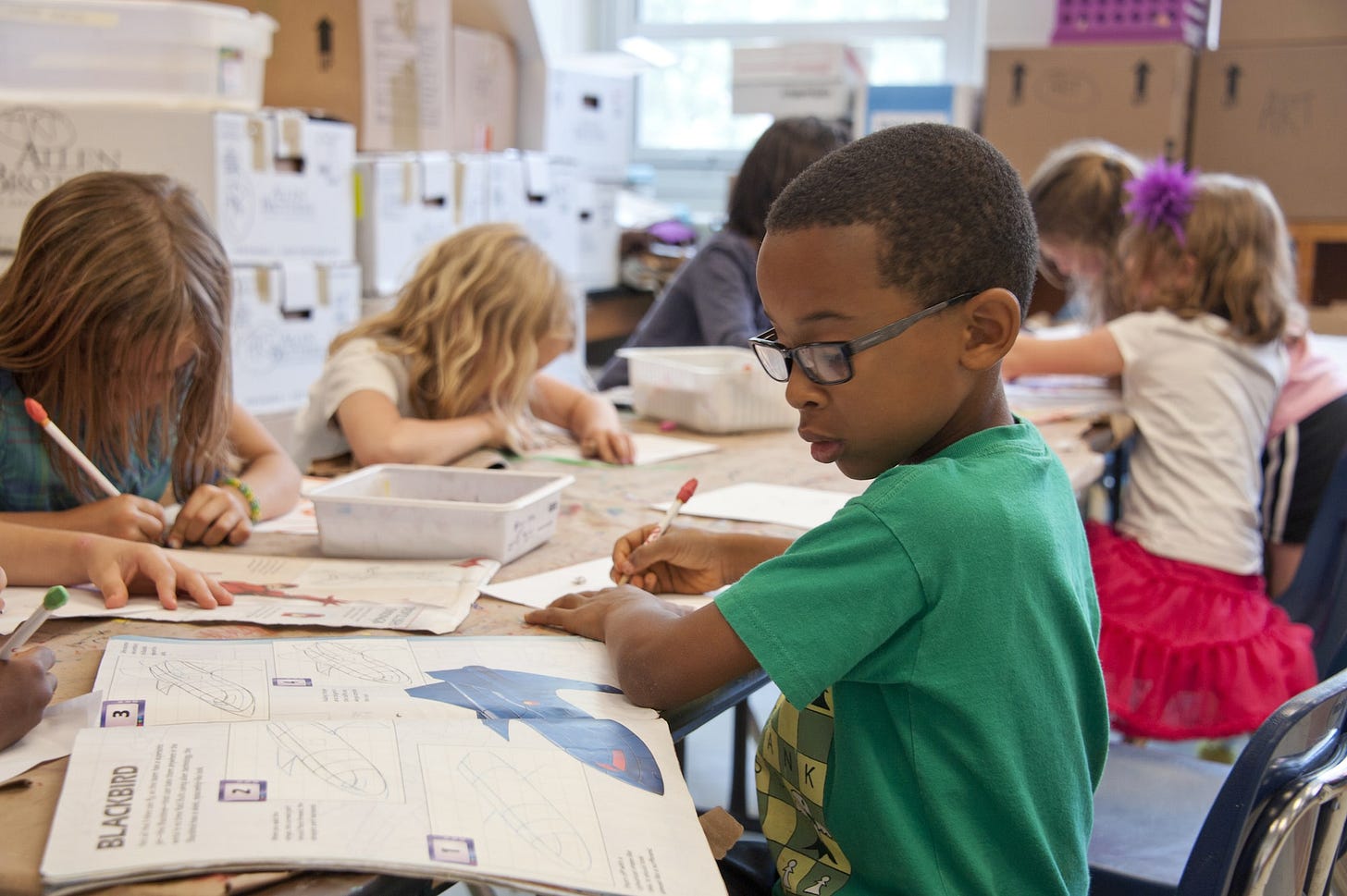
Bishop Tom Daly of Spokane became in 2021 the chairman of the U.S. bishops' committee on Catholic education.
Ordained a priest of San Francisco in 1987, Daly became San Jose's auxiliary bishop in 2011, and the Bishop of Spokane in 2015.
Amid Catholic Schools Week, Daly talked with The Pillar about the challenges Catholics schools face – and about their strengths.
This interview has been edited for length and clarity.
Bishop, what is the work of the USCCB’s committee for Catholic education? What is the scope of the committee’s work, and your responsibilities?
Well, it’s a three-year term, and I am in the second year. Mary Pat Donoghue is the executive director of the secretariat, and she is great to work with.
And a lot of our work depends on what seem to be the most pressing issues: right now that means the gender issue, and pushing for a concerted effort on school choice.
Of course, you can’t have a Catholic school if you don’t have it solid in its theology and if you aren’t clear on its mission, especially in an increasingly secular, and at times hostile culture.
So the committee works to navigate the consistent aspects and elements of Catholic education; the salvation of souls, and also these things which are coming up now as issues, like religious liberty, funding, the pressure of gender identity issues, and then the charter school issue — dioceses which are converting some of their schools into charter schools, or trying to, including the dioceses of Oklahoma.
[Editors' note: The Archdiocese of Oklahoma City and the Diocese of Tulsa recently petitioned the state of Oklahoma to be approved for the launch of a church-sponsored charter school, after the state’s attorney general gave initial approval to the idea. Education experts expect the question of whether religious organizations can operate charter schools could eventually make its way to the U.S. Supreme Court.]
I am very suspicious about this idea, because charter schools are essentially public schools with different rules. And if we lose our ability to hire and fire according to the mission of the school, we will have problems. But my fear is that charter schools will look like a quick-fix solution to dioceses, because schools were struggling after Covid.
I am very wary, because I think that’s the frog in the boiling water. You’ll get so used to it, you won’t realize that we’ve lost our schools.
Among the first things you mentioned is the mission and identity of the Catholic school, especially in a culture in which fewer people practice Christianity.
In that context, how does the Catholic school parse its mission — does it exist to form Catholic kids from Catholic families, or does it have a broader, evangelical mission, toward kids who don’t come from religious families? It seems like those things could be in tension.
I think schools have to be both.
From my own 20 years teaching, I saw there is an impact if very fervent Catholics decide the school isn’t good enough, or Catholic enough, and so they decide to homeschool — well, they pull out a kind of leaven from a school community.
And so you need to say, as a school, well, this is what the school is about — we’re here first and foremost for the salvation of souls, and to strengthen the faith of Catholic families, and Catholic kids, that we reinforce what’s taught in the home, or we supplement.
But then there’s an evangelical aspect, in which we know that family life is not perfect, and families have a lot of struggles — so we try to hold to the faith, and, at the same time, say, ‘look, when you come to us, this is what we offer. If this is something you value, even if right now you may not profess it, then join us. But if you want us to compromise, this is not that kind of place.’
Of course, we have seen schools which chose institutions over mission.
But, really, there is a tension between a more evangelical mission and one of forming the students of Catholic families only when, or if, we believe that we have to water down or compromise the faith in order to evangelize.
On the other hand, the other extreme is where people have to be reminded that schools are not seminaries and they’re not novitiates, they’re schools, and they are for people who aren’t always yet where the Church would hope for them to be in their life of faith.
So the image that I use is that of mending the nets. That’s kind of where we are in the Church, and with renewing Catholic education, we’re kind of mending the nets. But we have to be honest — at one end of the boat, we have people mending the nets, but we don’t want to be naive, because there are people at the end of the boat who might be cutting the nets, who are trying to see us compromise or water down the Catholic faith.
And we have seen there is some truth to what George Weigel says — that 'Catholic Lite' ends up becoming 'Catholic Zero.'
I think the one thing that is essential is to convey to families clearly what our schools are about. There is a great line from the Office of Readings from St. Elizabeth Ann Seton, who was really the patroness of the American Catholic school system.
She told her sisters that: “Our dear Savior was never in extremes.”
That’s a great line.
And it’s relevant to another challenge we face sometimes too, which is the divide between the ‘social justice’ Catholic school that’s light on Church teaching, and then the school that overly emphasize pious practices without the knowledge that our faith leads us to a relationship to love God, and then as we love God, we love our neighbor, and we help each other.
And these two extremes, neither is what the Church is, or what our schools should be about.
Bishop, you mentioned the challenge of school funding, and efforts working toward school choice programs, or voucher programs in a lot of states. Does the committee get involved in those projects?
Yes, although the groups really spearheading those projects are state Catholic conferences, which work to gather support to allow school choice legislation to come to ballot issues. And that’s worked in some states, and quite successfully, but in other states, the teacher’s unions have opposed those measures, and that’s another challenge we have to face.
But it’s on my priority list, because I look at those areas of the country where there are more significant immigrant populations, primarily Hispanic — the possibility for them to be in Catholic schools is absolutely essential.
And I think the school choice measures, and the option of a voucher, would hopefully help those families to choose Catholic schools, and to have the opportunity to grow in their faith, to grow in faith and wisdom.
In the meantime, Catholic schools continue to face financial challenges, and parishes and dioceses tackle them in different ways — but tuition does not often cover the cost of education, or if it does, the high cost of tuition prices families out of Catholic school.
So what do you advise pastors about the way to approach the parish school as an apostolate of the parish, and to consider the question of how much parish revenue should go into the school?
I come from the Archdiocese of San Francisco where the subsidy from parish to school was basically non-existent in many cases. And when I came to Spokane, I saw that the parish subsidy of the school in many places is very significant. I think the premise of that approach is that the school is the work of the whole parish.
The school was never intended to be supported solely on the financial sacrifices of the families with children in the school. It was always going to be a parish endeavor. And we need to keep that in mind, I would recommend that to pastors.
Now, some pastors will say that the school kids don't go to church. Okay, but why don't they go to church? I encourage our pastors to remember that if the kids in school start going to Mass, chances are you’re going to get the families to come to Mass, or at least there’s a better chance of that.
You know, we talk about going to the periphery, we talk about, accompanying people — you can count all the phrases that are very popular now. They don't mean that we stand on a street corner with a sandwich board that says, ‘Love Jesus.’ But in a school, we’ve got kids right in front of us, so let's start there.
On the other hand, there is an expectation of the families in the school that if you are benefiting from the sacrifices of the whole parish, you have to be committed to that parish — and that means Mass attendance and involvement in the parish.
So this question is not a one-way thing. It has to be both parish and school moving in the same direction, which is helping the kids grow in grace and wisdom, and both parish and school responding to Jesus' words: ‘Let the children come to me and do not hinder them.’
📰
Let’s talk about curriculum. There is a lot of conversation now about ensuring that Catholic education has a particular Catholic pedagogy — that a Catholic school is not just a public school plus religion class.
In your view, what are the most important elements of a Catholic pedagogical approach?
I think that some Catholic schools have become public school with, as they say, a kind of religious scaffolding around them
But Catholic pedagogy begins, first of all, with a Christian anthropology, that people are created in God's image and likeness, and that they are the beloved sons and daughters of God; there is a mission that each of us has been given. And the fact that Jesus is the way, the truth, and the life.
But we can compartmentalize things, we can place too much of an emphasis in education on just the conveyance of information to be tested and then regurgitated back up again. So I think the whole approach to Catholic education is truly - and it’s a trite word - but it’s the holistic approach where we begin with the seeking of the truth — and they are truths, not my truth or your truth, but just truth.
And a Catholic school brings all of that together, but it’s in everything – not just covering religion in religion class and then closing the religion book and moving on to something else.
I think that compartmentalizing the faith is what leads people eventually to abandon it.
I spoke in the summer at a conference on Catholic education in Washington, D.C. And there at the conference, I was talking with Bishop Conley of the Diocese of Lincoln, which has got a very solid Catholic school system. But he told me about a young priest, about 28, who had recently gone to his 10-year high school reunion, and was incredulous at how many of his classmates weren’t going to Mass anymore. And so that young priest said, ‘Clearly more is needed. We’ve given the truth, but more is needed.’
And so I think the Catholic school curriculum has to have an integrated approach of faith and knowledge and service. We have to try our best, but Catholic education can't be just giving students the information — or not giving them the information, for that matter.
Start your day with Starting Seven - a daily news roundup in your inbox.
You also mentioned the challenges that schools are facing with policies regarding sexual orientation and gender identity.
Here again, it seems the Church has two goals — to protect her religious liberty, and to live and act as the Church, to treat people who identify as gay or transgender with ‘respect, compassion, and sensitivity,’ and to be able to form such people in the life and teachings of the Church.
How do schools best navigate those issues, in your view?
First, increasingly, more dioceses are expressing their policies in a public way —Arlington and Milwaukee, among them.
[In Spokane], we have a policy that is very similar to what Arlington, Virginia, came up with. And for Arlington, in the Washington, DC, suburban area, that’s not exactly an easy part of the country to address these things.
But, I think you're trying to, in compassion, help someone struggling, but also knowing that there’s almost this explosion, in terms of the number of people - adolescents - who are identifying as non-binary.
You ask yourself, how did this all happen? And I think it's social media.
The truth is the truth, but we have to deal with what is. And we live at a time when our young people are getting so much information, and much of it from social media, that it leads to them being confused about things like identity.
So how do we say: ‘No, this is wrong’?
That's what we have to do. We have to be clear that we do care for that child, but we can't allow that child to be experimented with, by either so-called professionals, or by social media, or even by scared parents.
And it's not easy. It is not easy. And it's more difficult if you are, perhaps, in San Francisco than if you were Great Falls- Billings, Montana. But nonetheless every diocese has some challenge it faces on this issue.
Bishop, as you look to the next decade of Catholic education in America, what are the really big challenges that you see coming for Catholic schools?
I think the biggest thing is, as more and more people cease to practice their faith, if they don't see Christ as important in their life, they don't see it as important that we're part of a Eucharistic community, well they're not going to think educating their children in the faith, and making a financial sacrifice to do that, is important.
That's probably the biggest challenge: dealing with the reality of the secularization of so many people.
Connected with that, however, is not to give up. In my experience, the devil distracts, divides, discourages - and if not stopped - destroys. And so you can have people in this mission of Catholic education who are discouraged because they see the challenges, they get distracted and they go down the charter school path or whatever it is, and they're distracted by this big division, in the Church between, you know, thinking about who is ‘right wing’ and who is ‘social justice’ and that sort of thing.
All of that type of distraction from what we're about — that follows this upcoming reality of secularization.
And I think we have to be very humble. I mean, when Jesus talks about being ‘meek and humble of heart’, I think that’s for the Church to hear.
You know, the Church was humiliated during the abuse crisis. And then the latest scandal of McCarrick saw the bishops humiliated. But we need to be humble. And I think when we're humble, we can be grateful, and when we're humble and grateful, we can be generous.
And that's what I think our message has to be to, for the Catholic faithful, and the bishops, and the priests especially who are pastors, they need to be courageous and say: ‘Look, the Catholic school system requires sacrifices, but the alternative is our young people being influenced in a way that can affect ultimately the salvation of their souls.
I don't really have a prophetic look to the future, to be honest, but those seem to me to be the things that we are dealing with.
Bishop, what are Catholic schools doing really well right now? What strengths do you see? And how can schools build on them?
I think that a sense of responsibility to God and others is really taught there in our Catholic schools. We understand the ‘why’ behind what we do.
And to speak primarily for my diocese, Spokane, I think our schools hadn't really received a lot of attention for the last 50 or so years. I think as the sisters began to withdraw, one school after another school just kind of failed. So, for me, I have made addressing that a priority.
I think nationally there are programs, like at Notre Dame, which offer a program where pastors are trained on how important the school is and what is the necessary involvement that they have. There are a lot of good things happening with that.
And as I see schools looking for a more liberal arts or classical model, I think that’s looking good for the future as well.
Where there has been success on school choice, I think that’s great.
But I also see that we need to face the reality of unresolved issues that need to be addressed - like the unresolved issues at Brebeuf School in Indiana, which raises a big question, namely, ‘what does it mean to be a Catholic school?’
And I think events like that are forcing dioceses to evaluate their mission, to recognize that we don’t operate Catholic schools just to keep kids out of public schools, and to be more intentional about what we do.
I think Covid showed that Catholic schools have strength in being very relational in our approach, rather than being plagued by the unions, and bureaucracy, and the latest ‘woke’ agenda that public schools face.
The majority of Catholic schools have navigated through a lot of craziness, but we can’t take that for granted. We have to be very intentional and very deliberate. There are a lot of good things [happening], but there are still wolves out there.


